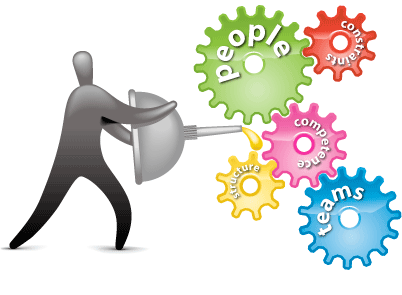 Setting the Stage
Setting the Stage
Ever felt like the walls of your office are closing in, suffocating you with a sense of transactional emptiness? In our post-COVID world, where the boundaries between office and home blur, interactions often feel more like fleeting transactions than genuine connections. Returning to the office (RTO) can resemble navigating a bustling subway station – crowded, impersonal, and devoid of authentic engagement. Amidst this atmosphere, have you ever witnessed, felt the brunt of, or outright expressed wrath in the workplace?
Wrath (noun): Extreme anger; intense, vengeful fury or indignation typically resulting from a perceived injustice or wrongdoing. It is often characterized by a desire for retribution or punishment against the perceived offender. Wrath is a powerful and volatile emotion that can lead to destructive behavior if left unchecked.
If you’ve ever found yourself navigating the turbulent waters of office politics or wrestling with the complexities of human emotions in professional settings, then do I have a podcast episode to share with you!
I chatted with my Agile Uprising colleagues Andrew Leff and Chris Murman while on a journey through the tangled web of wrath and its impact on our daily lives.
So, grab your favorite beverage, settle into your comfiest chair, and let’s dive right in!
Embraced Passion, Tamed Wrath
Chris kicked off the discussion by highlighting the thin line between passion and wrath. We all knew that passion could be a driving force behind innovation and collaboration, but when left unchecked, it could easily spiral into destructive wrath.
The Parent-Child Dynamic
Ever felt like your organization was playing the role of a stern parent, ready to dole out punishment at the slightest misstep? In our conversation I drew parallels between organizational dynamics and familial relationships, shedding light on the power dynamics at play. (See Decision Making Patterns for Teams)
Fear of the Unknown
One of my favorite insights from the conversation was the idea of fearing wrath before it even materialized. As Chris astutely observed, many of us carried the baggage of past experiences or industry anecdotes, shaping our behavior out of fear of reprisal. (See Triune Brain: Myth or Fact)
Harnessing Wrath for Good
But fear not, dear reader, for there was hope amidst the chaos! Andrew challenged us to rethink our relationship with wrath, urging us to harness its energy for positive change. After all, as he eloquently put it, “One person at a time, we could shift culture and create a more compassionate workplace.” (See Spiral Dynamics)
Final Thoughts on Wrath in the Workplace
As the episode drew to a close, a powerful reminder surfaced: compassion is a virtue that shouldn’t be overshadowed by the hustle and bustle of modern life. By embracing our emotions, fostering accountability, and cultivating empathy, we can navigate the murky waters of wrath with grace and resilience. (See Collaboration – Hey, Would Ya Buzz Off? I am not Defensive!)
Join the Conversation
So, dear readers, what were your thoughts on wrath in the workplace? Have you ever found yourself grappling with intense emotions or navigating tricky interpersonal dynamics? We’d love to hear your stories and insights – after all, we were all on this crazy journey called life together!
Until next time, stay curious, stay compassionate, and keep on navigating those waves of wrath with style!

 Setting the Stage
Setting the Stage